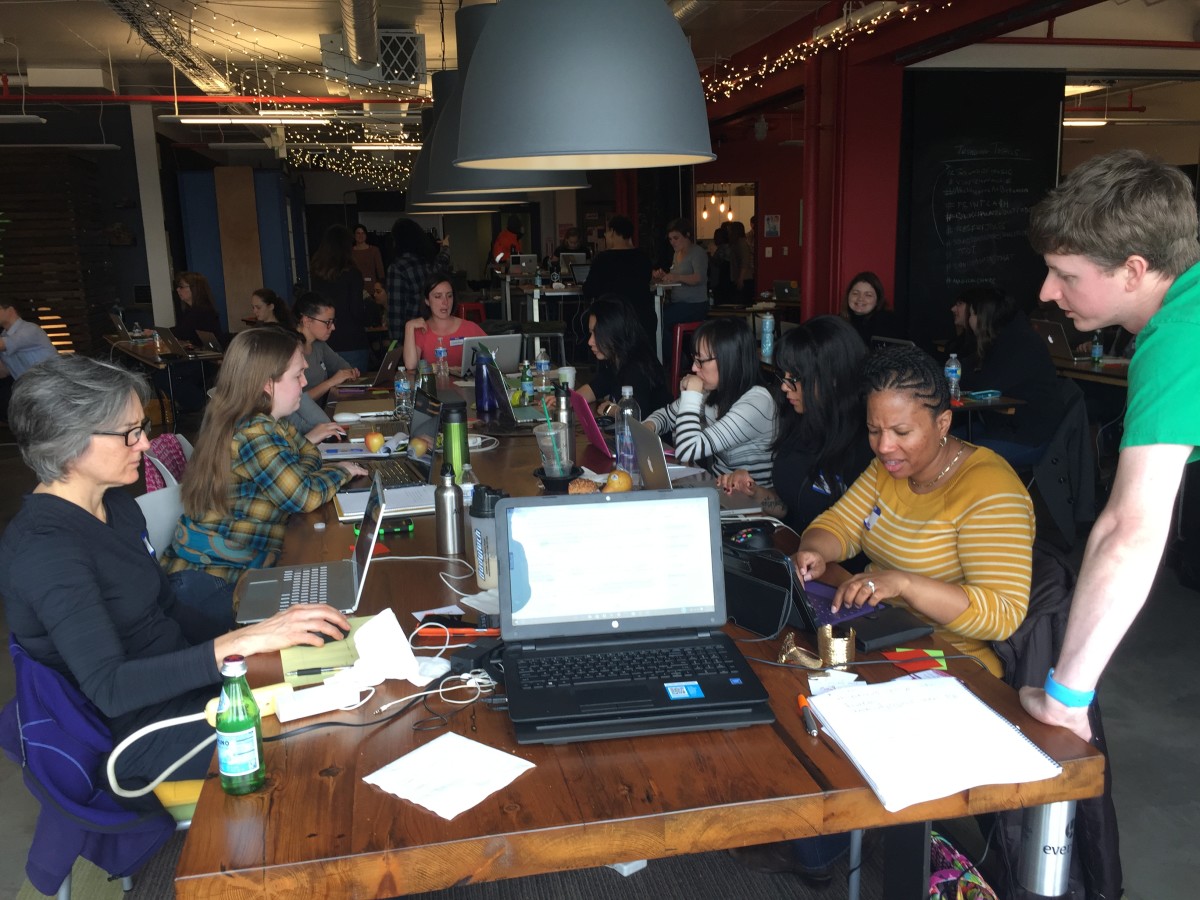When it comes to the numbers of women working in technology positions, Baltimore is showing progress: An annual review of jobs data by SmartAsset showed that the city moved up to the number 2 position on the ranking of best cities for women in tech.
The city is well above the national average on most metrics, yet there remains room for improvement. For instance, the number of tech jobs filled by women remains at 31 percent, which is well short of half the population. In a field that’s touted as a source of job growth but skews notoriously male, there are growing efforts to level the playing field.
Continuing to make progress won’t come down to a single hiring strategy, and will involve trying new approaches along the way. To explore the specific actions being employed now, we gathered a group of women entrepreneurs, people ops experts and community leaders for Technical.ly Baltimore’s most recent stakeholder meeting ahead of NET/WORK Baltimore at University of Baltimore’s Thumel Business Center. Here’s a look at what we heard about each phase of the hiring process:
Expand networks
When it comes to hiring, it’s important to be aware of who might be able to be the best fit. That can mean getting outside of what’s already known. At Inner Harbor coworking community Spark Baltimore, Shervonne Cherry looks to provide companies with information about what’s in Baltimore.
“Since we’re supporting companies who want to tackle this issue,” said the cofounder of Baltimore Women in Tech, the space’s leadership is thinking about “what resources we can give them and educate them about Baltimore” and the many communities in the city. Cherry said Spark is working on “bridge building” between these communities and employers.
Advertise inclusion
When hiring, a company is showing itself off just as much as a candidate. So putting forward a welcoming environment can be important. At an event like a career fair, UMBC Career Center Director Christine Routzahn has seen students ask if there are women working at a company, and what practices they’re using to support. Having women representatives can help to show who works there, she said.
At Station North makerspace Open Works, the team has seen how creating the environment that will be a welcoming space for female and non-binary members through lactation lounge and other facilities helps lead to more diversity, said Membership Manager April Lewis. It’s also important to specifically encourage people from those groups to apply or join, Lewis said.
Such an environment is an asset, and it can serve as a “PR tactic” to communicate that a company wants to create a diverse team, said Amanda Gorman, founder of Nest Collaborative, which provides lactation support via video chat.
Remove bias
Attendees also cited extra steps to take during the hiring process. During an initial screening, having a team member conceal words in applications that were tied to gender or types of experience can help remove bias and neutralize the playing field, said Margaret Roth, who participated in hiring during her tenure building Yet Analytics.
Beyond the application, skills assessments can also help provide a level playing field where everyone is being judged on the same plain, said Megan Emhoff, VP of people operations at Fells Point healthcare data company Protenus.
Expand the pipeline
A key to hiring successfully is the pool of potential candidates that a company is building relationships with, and that goes beyond a single position. In doubling its headcount in a year, Protenus recognized the importance of “building your pipeline with really diverse people, so that it’s not a diversity hire or a woman hire — it’s a great hire.”
The company is also looking to build trajectories internally, creating pathways for women who are successful at the company to continue to grow after they are hired and take on leadership roles, Emhoff said.
Thinking about offering ways to grow skills both in technology as well as communication and leadership in the community can create a place for talented to people to show all the skills that they have, said Seema Iyer, who leads the Baltimore Neighborhood Indicators Alliance at University of Baltimore’s Jacob France Institute.







